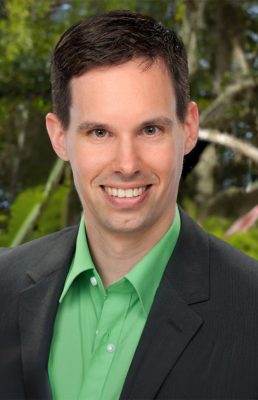

Katerina E. Aifantis focuses on using solid mechanics for understanding materials behavior at the nanoscale. Through funding from the Basic Energy Sciences Office of the Department of Energy she tries to understand the effect that grain boundary structure and chemistry have on the strength of sub-micron scale materials. In addition to basic science questions, she uses her theoretical and experimental insight into the materials mechanical behavior to predict the most promising materials systems that can be used in various applications, ranging from next generation electrodes for Li-ion batteries, to bone regeneration scaffolds and biocompatible electrodes for deep brain stimulation.



Professor Angelini received his Ph.D. in 2005 from the University of Illinois. His research interests include collective cell motion, mechanical instabilities in tissue cell assemblies, bacterial biofilm physics, soft matter physics, biomolecular self-assembly, and tribology of soft matter interfaces.

Professor Arakere received his Ph.D. in 1988 from Arizona State University. His research interests include Damage mechanics of structural materials subjected to monotonic and fatigue loading, Fatigue life evaluation, Rolling contact fatigue, Spall propagation, Superalloys, Foams, Related constitutive and finite element model development, and Dynamics of rotor-bearing systems.

Teaching Interests: Computational fluid science (aka CFD), Large scale simulation of complex flows, transition and turbulence, multiphase flows, environmental flows






Fluid mechanics, experimental methods, shock wave/boundary layer interactions, pressure and temperature sensitive coatings, low Reynolds number aerodynamics, application of MEMS, aero-optics
Applied AI and data analytics,Humans and technology,Personalized learning,Lifelong workforce development,Building a culture of inclusion and innovation,Experiential learning,Diverse talent pipeline


Nano / micro mechanics / materials, atomistic / continuum modeling and simulations, biomechanics / biomaterials

Transport phenomena with drops and bubbles, direct numerical simulation of heated flow instability and transition, microgravity boiling, space cryogenic fluid transport and storage, microscale heat transfer, biomedical engineering.




Applied AI and data analytics,Humans and technology,Sensors,eHealth and mobile health,Personalized medicine,Lifelong workforce development,Building a culture of inclusion and innovation





Adaptive nonlinear control, robotics, human-machine interactions, biomedical, visual servo control
Foundational AI,Applied AI and data analytics,Cybersecurity,Internet of Things,Networks and communications,Humans and technology,Automated construction,Transportation,Space,National Security,Neuroengineering,Assured Autonomy,Personalized learning,Lifelong workforce development,Building a culture of inclusion and innovation




Professor Fan joined UF in 2003. His research focus is to develop microfluidics and BioMEMS technologies and apply them to biomedical applications. Microfluidics involves device fabrication and manufacturing, study of fluid behavior in micro-scale, and exploiting the devices for a variety of applications including point-of-care testing, environmental monitoring, and detection of pathogens in the field.

Dynamics and control of multi-body systems, game theory, orbital dynamics, flight mechanics.



Dr. Griffis has 28+ years experience in the robotics and machine design industry and is a recognized expert in motion and force control. Professional accomplishments include a novel kinestatic control strategy for force control, design and development of a sub-micron machine tool for the semiconductor industry, design and development of a fully automatic laser lace cutter, design and development of a fully automatic battery welder, and design of a control system for a robotic refueling system.…







Research Interests: Advanced human tissue fabrication, 3D laser- and inkjet- based printing, precision machining, intelligent manufacturing.

Experimental mechanics, moiré interferometry, composite materials, micro air vehicles.


